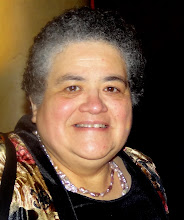+-+URI.jpg) Washburn Hall, my home at the University of Rhode Island
Washburn Hall, my home at the University of Rhode Island
I have a yellowed scrap of newspaper on my desk at the university, an old Ann Landers column with a quote from psychologist Haim G. Ginott (1922-1973) that has guided my life in the classroom:
"I've come to the frightening conclusion that I am the decisive element in the classroom. My personal approach creates the climate. My daily mood makes the weather. As a teacher, I posses a tremendous power to make a child's life miserable or joyous. I can be an instrument of torture or an instrument of inspiration. I can humiliate or humor, hurt or heal. In all situations, it is my response that decides whether a crisis will be escalated or deescalated, and a child humanized or dehumanized."
My students aren't children but they are no less affected by my moods. Every day, I pump myself up so that I am lighthearted and energetic when I cross the threshold of my classroom. I may be under the weather or suffering from some personal sorrow but I consciously shut it out when I walk into the room. 99% of the time, I succeed though the past year was a very difficult one personally for me.
A few months ago, I walked into the classroom on a day when I was emotionally stressed to the breaking point. I was trying very hard to gear myself up for the day's teaching but I realized I hadn't succeeded when one of my undergraduates, a young man built like a bear, said to me, "Are you okay?" a moment after I'd set my notebook on the podium. I smiled and said something like, "I'm just having a hard day." To which he replied, "Wanna hug?" Sweet boy. I laughed and thanked him saying that I would be fine but his kind gesture had snapped me out of it. I said to him later that he must have a close relationship with his mother. He gave me a big smile.
There is a kind of chemistry in the classroom that is as delicate as butterflies' wings. For three hours a week, for fifteen weeks, their eyes are on you. You are doing many things besides imparting knowledge about your specialty. You are honing their ability to think and express themselves clearly. You are exposing them to worlds that they never knew existed until they met you. You are setting an example of being an teacher, of being an intellectual.
Sometimes you connect with them so deeply that they go out of their ways to keep in touch with you after they leave your classroom. Usually, you don't know the effect you have on your students and there is no metric to measure it. You know when they show up in a second and third class you teach or when their younger siblings or friends show up in your classes telling you how much their friend or sister had enjoyed the class. Most of the time, you have no idea of your effect on their lives.
Teaching is like planting a tree; it is an expression of faith in the future. (517)

It's inspiring that teachers can have such a profound impact on students.
ReplyDelete